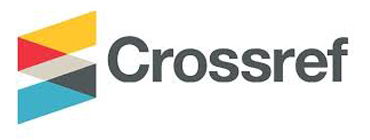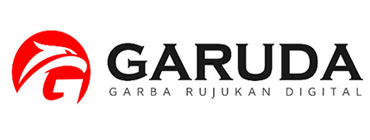THE INFLUENCE OF STEAM-BASED PROJECT-BASED LEARNING MODELS ON STUDENTS' LEARNING OUTCOMES IN CLASS IV ENERGY TRANSFORMATION MATERIAL AT MIN 6 BIREUEN
Abstract
Full Text:
PDFReferences
Anindya Urfah Ayu Faiz. (2019). Pengaruh Model PjBL-STEAM Pada Materi Cahaya Dan Alat Optik Terhadap Keterampilan Memecahkan Masalah Siswa Dan Komunikasi Siswa. [Skripsi, Universitas Negeri Semarang], Semarang.
Amelia Winda, Arita Marini. (2022). Urgensi Model Pembelajaran Science, Technology, Engineering, Arts, and Math (STEAM) Untuk Siswa Sekolah Dasar. Jurnal Cakrawala Pendas. 8:292.
A.Octavia shilphy. (2020). Model - Model Pembelajaran. CV Budi Utama, Yogyakarta.
Albaar Ridha Muhammad, (2020). Desain Pembelajaran Untuk Menjadi Pendidik Yang Profesional, Uwais Inspirasi Indonesia, Jawa Timur.
Becker, F. G., Cleary, M., & Team. (2015). Model Pembelajaran Berbasis Proyek Project Based Learning (PjBL). Syria Studies, 7(1), 37–72.
Ilyasin Mukhamad, (2010). Seni Mendidik Dalam Pendidikan. Absolute Media. Yogyakarta.
Jagantara Wirasana Made, dkk. (2014). Pengaruh Model Berbasis Proyek (Project Based Learning) Terhadap Hasil Belajar Biologi Ditinjau Dari Gaya Belajar Siswa Sma, e-Journal Program Pascasarjana Universitas Pendidikan Ganesha Program Studi IPA, (4). 1-2.
Juniaty, dkk. (2016). STEAM : Apa, Mengapa, Dan Bagaimana. Pros. Semnas Pend. IPA Pascasarjana UM, (1), 976-978.
Nurfitriyanti Maya. (2016). Model Pembelajaran Project Based Learning Terhadap Kemampuan Pemecahan Masalah Matematika. Jurnal Formatif. 6: 153-155.
Nurhayati, (2014). Meningkatkan Hasil Belajar Siswa Dengan Menggunakan Metode Bimbingan Mata Pelajaran IPA di Kelas III SD Inpres 1 Bainaa. Jurnal kreatiif tadulako, 10(4), 2.
Nurhikmayati Lik, (2019). Impelementasi STEAM Dalam Pembelajaran Matematika, Jurnal Didactical Mathematics, 2(1), 42
Prabawati Putu Lely Somya , Gusti Ngurah Sastra Agustika. (2020). Project-Based Learning Based On Stem (Science, Technology, Engineering, And Mathematics) Enhancing StudentsScience Knowledge Competence. Jurnal Ilmiah Sekolah Dasar, 4(4), 621-629.
Refbacks
- There are currently no refbacks.

This work is licensed under a Creative Commons Attribution-NonCommercial-ShareAlike 4.0 International License.
INDEXING
Bright Vision by UIN Sumatera Utara Medan is licensed under a Creative Commons Attribution-NonCommercial-ShareAlike 4.0 International License.
Based on a work at http://jurnaltarbiyah.uinsu.ac.id/index.php/brightvision.









